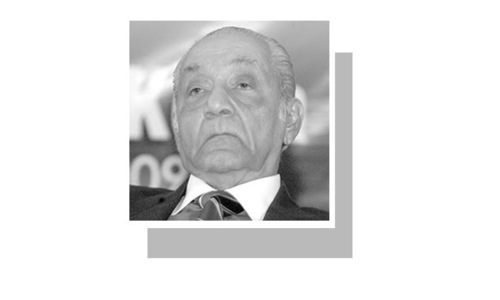KARACHI: The All Pakistan Newspapers Society (APNS) and the Council of Pakistan Newspaper Editors (CPNE) have criticised the federal cabinet’s decision to set up the Pakistan Media Regulatory Authority (PMRA) that is to replace the existing bodies regulating print and electronic media.
The APNS termed the decision a particularly regressive measure and the CPNE described it as a move aimed at curbing the freedom of print media.
In a press release issued on Friday, APNS President Hameed Haroon and its Secretary General Sarmad Ali expressed concern over the move and said it was the “most regressive measure against the media”.
The existing media laws — namely the Press Council Ordinance; Press Newspapers, News Agencies and Books Registration Ordinance; and Pemra Ordinance — were being annulled that were enacted after protracted dialogue and consultation between the government and the media organisations, they said.
And the proposed PMRA was being formed without any consultation between the stakeholders, contrary to the firm assurances given in this regard by Iftikhar Durrani, the special assistant to the prime minister on media, and Fawad Chaudhry, the federal information minister, they added.
The APNS office-bearers said it would be impractical to bring print and electronic media (i.e. television, radio, social and digital media) under one regulatory authority. “The broadcast and digital media can be brought under one umbrella but print media, being different in nature..., cannot be lumped with them. Even, in developing countries, print and electronic media are treated separately,” said their press release.
They pointed out that the information ministry had not provided the draft of the proposed PMRA to APNS but only disclosed some salient features of the new body, which included a licensing system to control the media and composition of the authority to administer the media. However, the draconian “teeth” relating to terms of licensing and punishment of any breach had been concealed.
“It seems the officials of the Ministry of Information have dug out the notorious PPO, promulgated by military dictator General Ayub Khan, from the dustbin of history and presented it with a new title, which is not acceptable to the media in the country,” said the press release.
“The APNS is of the considered opinion that the proposed licensing system and measure intended to tame, control and subjugate the media are in gross conflict with Article 19 of the Constitution and basic human rights.”
The APNS office-bearers also pointed out that after the 18th Amendment, any legislation in relation to newspapers, books and printing presses had become an exclusive provincial subject and any attempt by the federal government to form such an authority would be in contravention to the Constitution.
“However, the federal government is trying to bring e-papers of newspapers under the ambit of this authority and impose its draconian laws on print media indirectly after bypassing the Constitution,” said the press release.
The APNS office-bearers urged the federal government to ensure a meaningful dialogue and consultation with all the stakeholders in the media before setting up the proposed authority.
For their part, CPNE President Arif Nizami, Senior Vice President Imtinan Shahid and Secretary General Dr Jabbar Khattak said that efforts aimed at controlling media in the name of regulating them would never gain popularity and support in the country.
“The CPNE believes that although improving media laws in the light of requirements of the Constitution and aspirations of the people is the need of the hour, it’s vital that before formulating any such formula or law all the stakeholders are consulted,” they said in their press release.
The CPNE office-bearers said there was no need for special laws for the print media and therefore they should be allowed to function under “normal laws”.
Published in Dawn, January 26th, 2019













































